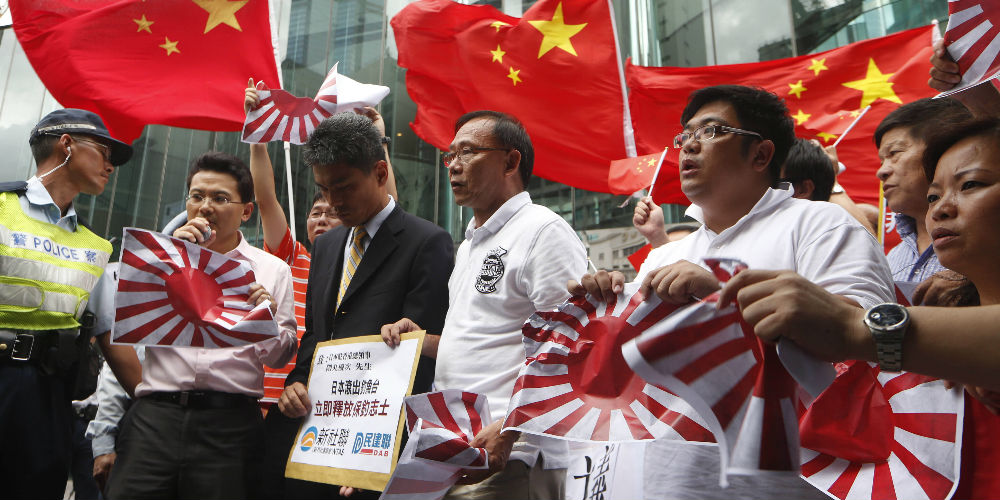
Anti-Japan protesters tear Japanese Rising Sun Flags as an unidentified representative of Japanese Consulate General, third left, is receiving a letter during a rally outside the Japanese Consulate General in Hong Kong Thursday Aug. 16, 2012. They demanded Japanese government to release Chinese activists arrested in Japan after landing on Uotsuri Island, one of the islands of Senkaku in Japanese and Diaoyu in Chinese. Japan is considering deporting 14 Chinese activists arrested for landing without authorization on disputed islands in the East China Sea, as harsh criticisms and repeated demands for their release erupted Thursday in China. (AP Photo/Kin Cheung)
TOKYO–All 14 pro-China activists arrested after sailing to an island disputed with Japan will soon be in immigration custody as Tokyo prepares their immediate deportation, police said Friday.
Okinawa Police were making final arrangements to transfer the remaining five to an immigration facility later in the day after nine were sent there overnight, a police spokesman said.
“With the process, they will leave the hands of police and go to immigration,” the spokesman told AFP.
The group of activists had sailed from Hong Kong on Sunday. Five of them were arrested on one of the islands known as Senkaku in Japanese and Diaoyu in Chinese on Wednesday, the 67th anniversary of Japan’s World War II surrender.
News reports said Japan was likely deport them as early as Friday, with Tokyo looking to avoid a repeat of the diplomatic calamity of 2010 when it held a Chinese trawlerman for two weeks after he rammed coastguard vessels.
Japan was widely criticised as having caved in to Chinese pressure and being forced into releasing the man after Beijing halted high level contacts and stymied trade.
In 2004, when a group of Chinese activists landed on a disputed island, the then prime minister Junichiro Koizumi ordered their deportation after two days.
The renewed dispute over the islands comes as Japan’s relations with South Korea have also become increasingly frayed after President Lee Myung-Bak last week visited islets controlled by Seoul but claimed by Tokyo.